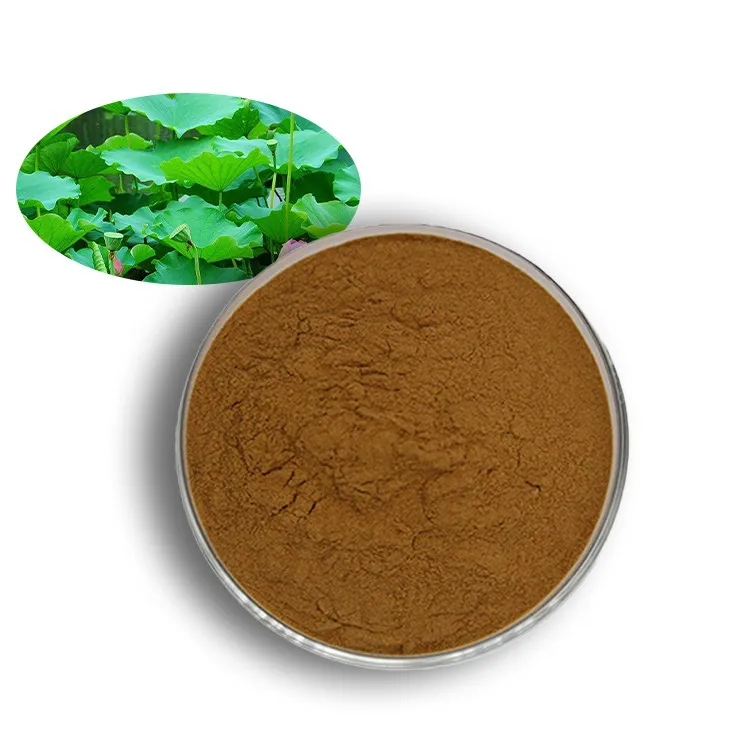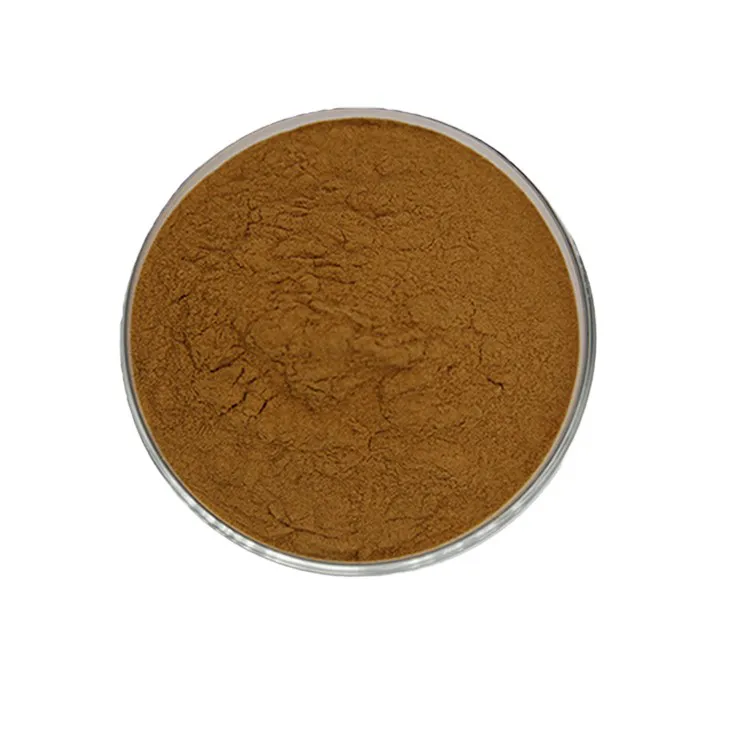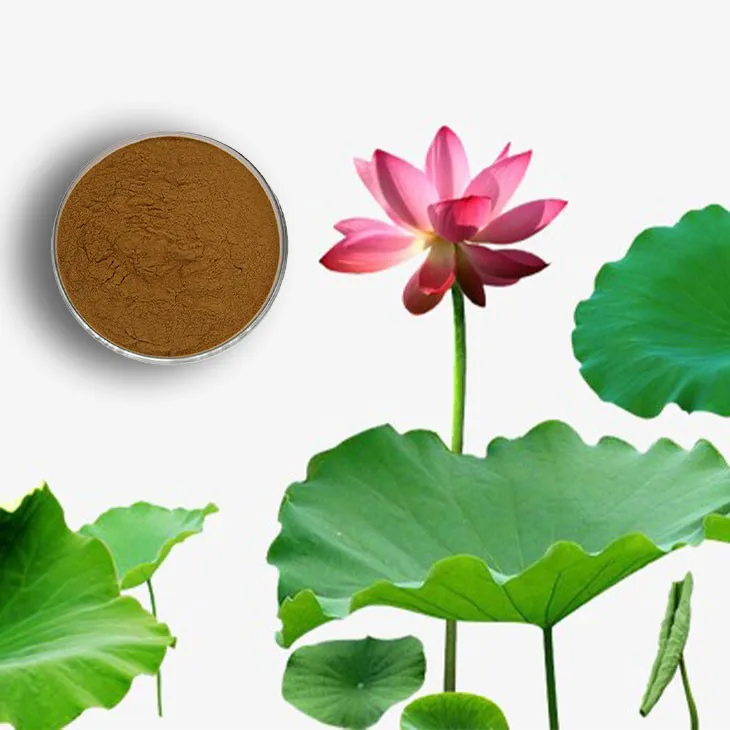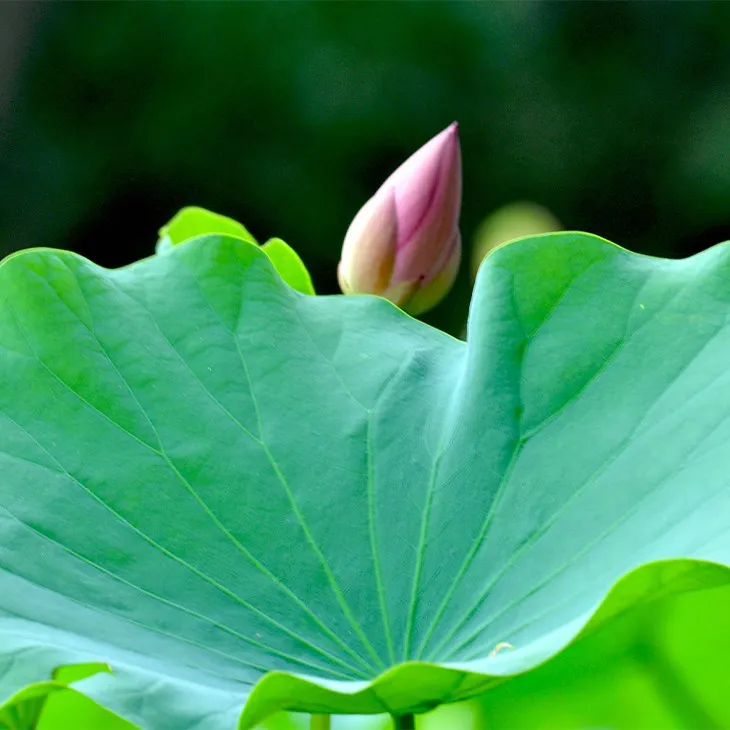- 0086-571-85302990
- sales@greenskybio.com
How can the efficacy of lotus leaf extract be extended to hair and vitality?
2024-11-14

1. Introduction
The lotus leaf, a well - known plant part in traditional medicine and natural remedies, has been the subject of much research. Lotus leaf extract contains a rich array of bioactive compounds, which have shown potential in various aspects of health. In recent years, there has been growing interest in exploring how its efficacy can be extended to hair health and overall vitality. This article delves into the possible mechanisms and applications.

2. Lotus leaf extract: Composition and General Properties
Lotus leaf extract is composed of multiple bioactive substances. One of the key components is flavonoids. Flavonoids are known for their antioxidant properties. They can scavenge free radicals in the body, which play a crucial role in preventing cellular damage. Another important group of compounds in lotus leaf extract is alkaloids. These alkaloids may contribute to the anti - inflammatory effects of the extract.
In addition, lotus leaf extract also contains phenolic acids. These phenolic acids have been shown to have antimicrobial properties. Overall, the combination of these bioactive compounds gives lotus leaf extract its unique set of properties that could potentially be beneficial for hair and vitality.

3. Hair Health and Lotus Leaf Extract
3.1 Antioxidant Protection for Hair
Hair is constantly exposed to environmental stressors such as ultraviolet (UV) radiation, pollution, and chemical pollutants from hair products. These factors can generate free radicals in the hair and scalp. Free radicals can damage the hair cuticle, leading to problems like dryness, brittleness, and split ends.
The flavonoids in lotus leaf extract, with their antioxidant capabilities, can help to neutralize these free radicals. By doing so, they protect the hair from oxidative damage. This protection can maintain the integrity of the hair structure, keeping it healthy and shiny. For example, in a study comparing the effects of different natural extracts on hair exposed to UV radiation, lotus leaf extract - treated hair showed significantly less damage compared to untreated hair.
3.2 Anti - Inflammatory Effects on the Scalp
The scalp can often suffer from inflammation due to various reasons such as fungal or bacterial infections, or an allergic reaction to hair products. Inflammation can lead to problems like dandruff, itching, and even hair loss in severe cases.
The alkaloids in lotus leaf extract, with their anti - inflammatory nature, can help to soothe the scalp. They can reduce the redness and swelling associated with inflammation. By calming the scalp, lotus leaf extract can create a more favorable environment for hair growth. For instance, in a trial on individuals with mild scalp inflammation, a topical application of lotus leaf extract - based solution showed a reduction in itching and flaking within a few weeks.
3.3 Promoting Hair Growth
A healthy scalp is essential for hair growth. By reducing inflammation and protecting the hair from oxidative damage, lotus leaf extract indirectly promotes hair growth. Additionally, some of the bioactive compounds in the extract may stimulate the hair follicles directly.
It is hypothesized that certain components of lotus leaf extract can increase blood circulation in the scalp. Improved blood circulation means that the hair follicles receive more nutrients and oxygen, which are necessary for hair growth. Although more research is needed in this area, the initial findings are promising.

4. Vitality and Lotus Leaf Extract
4.1 Boosting Energy Metabolism
In traditional medicine, lotus has been associated with promoting internal balance and well - being. Lotus leaf extract may play a role in boosting overall body energy metabolism. The phenolic acids in the extract may interact with enzymes involved in metabolic processes.
For example, they could enhance the function of mitochondria, the powerhouses of the cell. By improving mitochondrial function, the body can generate more energy from the food we consume. This increased energy can lead to a feeling of greater vitality, allowing individuals to be more active and productive throughout the day.
4.2 Immune System Support
A strong immune system is crucial for overall vitality. The antimicrobial properties of the phenolic acids in lotus leaf extract can help to fight off pathogens. By reducing the load of harmful microorganisms in the body, the immune system has to work less hard to maintain health.
Moreover, the anti - inflammatory effects of the extract can also support the immune system. Chronic inflammation can suppress the immune system, and by reducing inflammation, lotus leaf extract helps to keep the immune system functioning optimally.
4.3 Stress Reduction
High stress levels can have a negative impact on vitality. Lotus leaf extract may have a role in stress reduction. Although the exact mechanisms are not fully understood, it is possible that the bioactive compounds in the extract can interact with the body's stress response systems.
For example, they could modulate the release of stress hormones such as cortisol. By reducing stress hormone levels, the body can be in a more relaxed state, which is beneficial for overall well - being and vitality.

5. Methods of Application
5.1 Topical Application for Hair
One of the most common ways to apply lotus leaf extract for hair health is through topical application. This can be in the form of a hair mask, a leave - in conditioner, or a shampoo.
- For a hair mask, lotus leaf extract can be combined with other natural ingredients such as honey, avocado, or coconut oil. The mask can be applied to the hair and left on for 20 - 30 minutes before rinsing off.
- A leave - in conditioner with lotus leaf extract can be sprayed onto damp hair. This provides ongoing protection and nourishment to the hair throughout the day.
- Shampoos containing lotus leaf extract can be used during regular hair washing. They can clean the hair while also providing the benefits of the extract.
5.2 Oral Consumption for Vitality
To potentially boost vitality, lotus leaf extract can also be consumed orally. It can be available in the form of capsules, tablets, or as an ingredient in herbal teas.
- Capsules and tablets are convenient options for those who want a precise dosage. They can be taken daily as per the recommended instructions.
- Herbal teas with lotus leaf extract offer a more natural and enjoyable way to consume the extract. The tea can be sipped throughout the day, providing a gentle and continuous supply of the beneficial compounds.
6. Precautions and Considerations
While lotus leaf extract shows potential benefits, there are also some precautions to be taken.
6.1 Allergic Reactions
Some individuals may be allergic to lotus leaf extract. Before using any products containing the extract, it is advisable to do a patch test. This is especially important for topical applications. If a rash, itching, or other allergic symptoms occur after application, the use of the product should be discontinued immediately.
6.2 Interaction with Medications
If you are taking medications, it is important to consult a healthcare provider before starting to use lotus leaf extract. There may be potential interactions between the extract and certain medications. For example, if you are on blood - thinning medications, the anti - inflammatory properties of the extract may increase the risk of bleeding.
6.3 Quality and Purity of Extract
When choosing products containing lotus leaf extract, it is crucial to ensure the quality and purity of the extract. Low - quality extracts may not contain the expected levels of bioactive compounds and may even be contaminated with harmful substances. Look for products from reputable manufacturers and check for third - party certifications if possible.
7. Conclusion
Lotus leaf extract has great potential in terms of its application to hair health and overall vitality. Its antioxidant, anti - inflammatory, and other properties make it a promising ingredient in hair care products and supplements for vitality. However, more research is still needed to fully understand its mechanisms of action and to optimize its use. With proper precautions and further study, lotus leaf extract could become an important part of a holistic approach to maintaining healthy hair and enhancing vitality.
FAQ:
Q1: How does lotus leaf extract protect hair from environmental damage?
The lotus leaf extract is rich in bioactive compounds which act as antioxidants. These antioxidants can neutralize free radicals in the environment that would otherwise damage the hair. By scavenging these harmful substances, the extract helps maintain the integrity of the hair structure, preventing issues such as split ends, dryness, and breakage caused by environmental factors like pollution and UV radiation.
Q2: Can lotus leaf extract really reduce dandruff?
Yes, it might be able to. Since the lotus leaf extract has anti - inflammatory properties, it can soothe the scalp. Dandruff is often associated with an inflamed scalp. By reducing inflammation, the extract can create a healthier scalp environment which may in turn reduce the occurrence of dandruff.
Q3: In what way does lotus leaf extract boost body energy metabolism?
The exact mechanism is not fully understood yet. However, in traditional medicine, lotus leaf has been associated with promoting internal balance. It may interact with certain cellular processes in the body, perhaps influencing the way cells break down nutrients and generate energy. Some of its bioactive components could potentially enhance the efficiency of metabolic pathways related to energy production.
Q4: Are there any side effects of using lotus leaf extract for hair and vitality?
While lotus leaf extract is generally considered safe, some people may be allergic to it. In addition, if it is used in high concentrations or in combination with other substances without proper research, there could potentially be unforeseen interactions or adverse effects. However, more research is needed to fully understand any possible side effects in the context of using it for hair and vitality.
Q5: How can one use lotus leaf extract for hair health?
One can use lotus leaf extract in hair products such as shampoos, conditioners, or hair masks. It can also be made into a hair rinse by brewing it like tea and using the liquid to wash the hair. However, when using homemade preparations, it is important to ensure proper hygiene and storage to avoid spoilage or contamination.
Related literature
- The Bioactive Compounds in Lotus Leaf and Their Potential Health Benefits"
- "Lotus Leaf Extract: A Promising Ingredient for Hair and Skin Care"
- "Traditional Medicine and the Role of Lotus Leaf in Promoting Vitality"
- ▶ Hesperidin
- ▶ Citrus Bioflavonoids
- ▶ Plant Extract
- ▶ lycopene
- ▶ Diosmin
- ▶ Grape seed extract
- ▶ Sea buckthorn Juice Powder
- ▶ Fruit Juice Powder
- ▶ Hops Extract
- ▶ Artichoke Extract
- ▶ Mushroom extract
- ▶ Astaxanthin
- ▶ Green Tea Extract
- ▶ Curcumin
- ▶ Horse Chestnut Extract
- ▶ Other Product
- ▶ Boswellia Serrata Extract
- ▶ Resveratrol
- ▶ Marigold Extract
- ▶ Grape Leaf Extract
- ▶ New Product
- ▶ Aminolevulinic acid
- ▶ Cranberry Extract
- ▶ Red Yeast Rice
- ▶ Red Wine Extract
-
Alisma Extract
2024-11-14
-
Polygonum multiflorum extract
2024-11-14
-
Carrageenan Extract Powder
2024-11-14
-
Almond Extract Powder
2024-11-14
-
Hedyotis Diffusa Extract
2024-11-14
-
Ginseng Root Extract
2024-11-14
-
Thunder God Vine Extract
2024-11-14
-
Aguaje Extract
2024-11-14
-
Red Vine Extract
2024-11-14
-
Tinospora cordifolia extract
2024-11-14





















